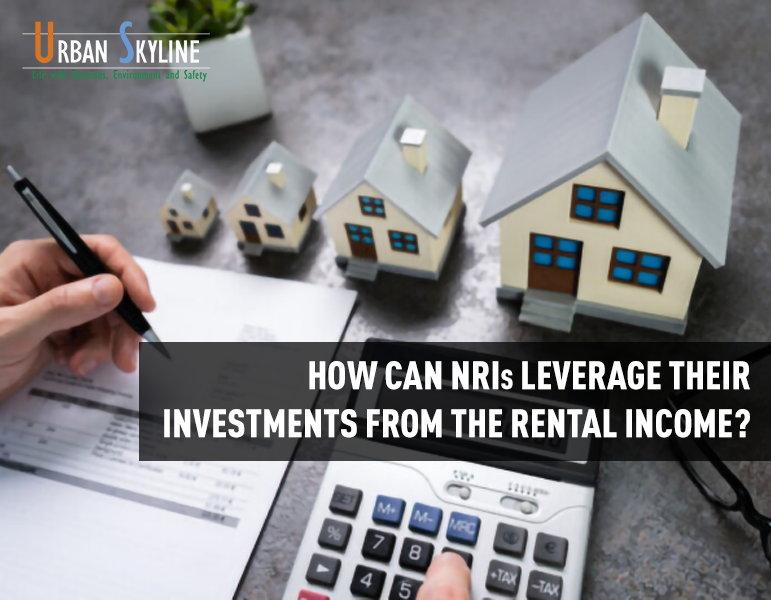Tallest Tower Of Pune | 2,3,4,5,6 BHK Flat in Ravet Pune
Ways NRIs can leverage their investments from the rental income

On 8 Feb 2022, By Admin
Many NRIs invest in Real Estate back home in India for their loved ones. They keep on investing in thriving cities, high-end areas, developing townships, and even in the outskirts of cities. Investing in real estate back in India proved beneficial for NRIs because they can earn rental incomes from the properties they own.
Here are various ways NRIs can leverage their investments from the rental income.
Through rental incomes, NRIs can achieve two aspects. One is the investment process to channelize rental income to meet definite financial goals, and the other is pertaining to the laws governing the rental income.
Investment process channelizing rental income
NRIs can invest in mutual fund schemes based on repatriable and non-repatriable modes. In the case of a repatriable basis, an NRI must have an NRE and NRO account. An NRO account in India is required to credit the rental income. In addition, a KYC process is required to invest in India.
How much to invest?
In India, a house involves many expenses, including house maintenance charges and repairs. Hence, it is advisable to calculate such expenses and deduct them from the annual rental receipts. Also, consider TDS which is 31.2 %. So, check out the actual tax liability and post-tax rental income for effective investment.
Where and how to invest?
First, come to the question in mind is, where to invest? If the investment is made for retirement benefits, then figure out the target retirement corpus. To achieve that goal, set asset allocation and the extent of monthly investments required in mutual funds. Instead of parking the money in a bank that could fetch interest of 3%annually invest in an equity fund via a SIP. Investing in equity funds can earn 10-12% per annum over the long term. Investing rental incomes in SIP is convenient, too, as these are completely automated. There is a 5-10% escalation in rentals to opt for top-up SIP every year. One can pause it if there is no income from rentals.
Rules and regulations governing the rentals
An NRI receives rents through his Non-Resident ordinary (NRO) account or foreign bank account remitted directly by the tenant. However, the tenant must submit a 15CA form online to the income tax department or Form 15CB, certified by a Chartered Accountant. Remittance is allowed once the forms are submitted to the income tax department.
Rental income is taxed
The rental income is earned in India, so the tax is payable in India. As per tax laws, income from the house property is calculated, which is added to the income from various heads. If the total income of the NRI is less than 2.5 Lakh per annum, then no tax is applicable.
TDS rates
The Tenant deducts a TDS of 31.2% from the rent every month. First, the tenant must obtain a Tax Deduction and Collection Account Number (TAN). Later, the tenant can deposit the TDS amount and the TDS certificate. He will get the tax refund if the TDS amount is more than the actual tax liability.
Conclusion
Monthly rents on properties minimize the continuous liability, and one can pay the EMI. A certain amount is deducted from the rental income in the form of tax. If you are an NRI and looking forward to buying property in Ravet, Pune, then check out residential properties like Urban Skyline phase 2 in Ravet. The tallest residential project of Pune is equipped with top-end amenities and features. The project is developed by Urban Space Creators, one of the leading developers of Pune, known for delivering projects benchmarking quality construction and on-time delivery.






